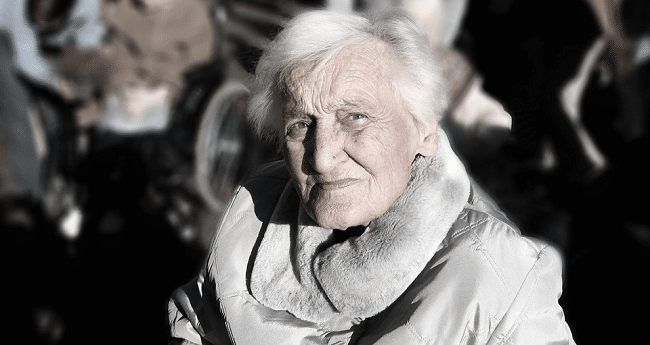Film and television are increasingly choosing to use dementia and Alzheimer’s as plot points, or even to drive entire narratives. It is no secret that dementia has a prevalent place within our society, with 850,000 sufferers in the UK alone; this number is expected to rise to 1 million by 2025.
With so many people affected by dementia and Alzheimer’s, the coverage of these terminal illnesses is more than welcome, as it raises awareness and gives the public some insight into what those diagnosed go through. However, there are some myths regarding the portrayal of people with dementia that we’d like to dispel.
1. Alzheimer’s disease is not a romantic or glamorous illness
Nick Cassavetes’ film adaptation of The Notebook (2004) tells the tale of Noah Calhoun reading to his wife Ali. Every day, he reads their love story from a worn-out notebook in a bid to jog her memory, which has been ravaged by Alzheimer’s disease. The film has been heralded as one of the most romantic movies ever, thanks to its tale of undying love. However, The Notebook romanticises Alzheimer’s within a family, suggesting that everything will work out in the end given nothing more than a simple memory jog. In fact, many people forget that Alzheimer’s disease is even involved in the film. Memory loss is one of many symptoms caused by Alzheimer’s disease, and this illness has an irrevocable effect of both the patient and their family.
2. Dementia isn’t a ‘funny’ disease
When a comedy show approaches the subject of dementia or Alzheimer’s disease, the results can often be compassionless and cruel. This has been seen in many television shows (Pete’s mother in Gavin and Stacey, and Abe from The Simpsons). A more recent case is the representation of Cloris Leachman’s character ‘Maw Maw’ from American sitcom Raising Hope. The Fox show has come under fire for being “not funny, but insensitive and cruel”. Maw Maw is often the butt of the show’s jokes; she rarely has any lucid moments, mistakes her grandson for her late husband, and forgets to put a shirt on. Raising Hope makes caring for dementia sufferers look simple and fun, when caring for a person with dementia requires patience, understanding and strength. Caring for someone with dementia costs roughly £30,000 annually, but family carers of people with dementia save the UK economy £1 billion annually.
3. There is more to Alzheimer’s disease than memory loss
Alzheimer’s disease has become synonymous with memory loss, as seen in The Notebook (2004) and National Lampoon’s Christmas Vacation (1989) among others. However, there is so much more to this complex disease. As mentioned earlier, forgetting places, names and memories is one of the many symptoms of Alzheimer’s, but the majority of patients relate to a feeling of sheer panic as they cannot find a connection to anything in their surroundings. They do not recognise anything around them, and everything becomes depersonalised. Dementia requires complex care and shouldn’t ever be diminished to just one symptom.
4. Dementia has no gender preference
Until recently, actors who portrayed sufferers of dementia were predominantly female. Still Alice, The Notebook, Grey’s Anatomy, The Iron Lady and Iris all show women suffering from dementia and Alzheimer’s disease. However, dementia does not have a gender preference; the older you get, the more likely you are to suffer from dementia, and because women tend to live longer than men, there are more female sufferers overall. 61% of dementia patients are female, and 39% are male.
5. Dementia isn’t a rapid disease
Still Alice (2014) tells the story of linguistics professor Dr Alice Howland and her poignant battle with early-onset dementia. The film has been recognised as a fairly accurate portrayal of what it is like to have Alzheimer’s disease, apart from the fact that Alice’s decline happens in under a year. Alzheimer’s disease and dementia can take as long as ten years to fully develop; vascular dementia is the quickest form of dementia to develop, but it is incredibly rare in anyone under the age of 65. If you suspect that a loved one of family member is suffering from Alzheimer’s or dementia, or you are looking for support for someone with these diseases, please do not hesitate to get in touch. Our team of professionals are always willing to help.

